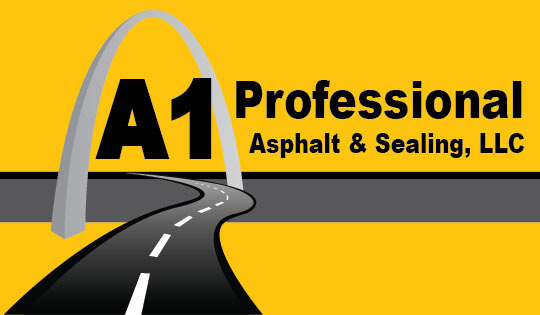A1 Professional Asphalt & Sealing Llc Can Be Fun For Everyone
A1 Professional Asphalt & Sealing Llc Can Be Fun For Everyone
Blog Article
The smart Trick of A1 Professional Asphalt & Sealing Llc That Nobody is Discussing
Table of ContentsThe Main Principles Of A1 Professional Asphalt & Sealing Llc The Best Guide To A1 Professional Asphalt & Sealing LlcNot known Facts About A1 Professional Asphalt & Sealing LlcHow A1 Professional Asphalt & Sealing Llc can Save You Time, Stress, and Money.Getting My A1 Professional Asphalt & Sealing Llc To Work
In its structure, asphalt consists largely of Bitumen integrated with various types of accumulation, such as sand or gravel. Sidewalk, on the other hand, is a kind of concrete that includes aggregates, cement, and water. asphalt repairs. Relying on the area and use of the used pavement product, a mixture of different chemical admixtures might be included to make it extra durable
What is the distinction between asphalt and blacktop driveways? Blacktop is a mix of stone, sand, and crushed rock topped with asphalt. Blacktop is created to develop an even surface as a result of its enhanced resistance to weathering and ability to bear heavier lots. What is the distinction in between asphalt concrete pavement and concrete? Pavement can be made from either asphalt or concrete, with asphalt being smoother and much more durable due to its binder, while concrete hardens through the curing procedure yet tends to wear down with time because of weathering.
3 Easy Facts About A1 Professional Asphalt & Sealing Llc Explained
Just how do I keep my asphalt driveway? The most crucial part of preserving an asphalt driveway is making sure it's correctly sealed.
These should be gotten rid of and submitted as quickly as feasible. Regularly move away any kind of loosened rocks, dirt, or vegetation to stop more damage from taking place. Asphalt and pavement are common components on highways anywhere. Regardless of their resemblances, these two materials have some crucial distinctions that make each suitable for various situations.
Understanding these differences can assist ensure an ideal choice is made when selecting a surface area service. You can find out more articles like this one below.
How A1 Professional Asphalt & Sealing Llc can Save You Time, Stress, and Money.
Recently, State freeway companies and FHWA were impressed by a discovery: The private use re-refined engine oil bases in asphalt prevails. Simon Hesp, Queens College (Kingston, Ontario) Asphalt is the sticky black residue that is left over from the handling of petroleum. It has actually been made use of in paving for even more than a hundred years.

The asphalt, which serves as the sidewalk's binder, is likewise one of the most pricey component of the price of the product for leading roads. The weight of an asphalt see it here sidewalk varies relying on the aggregate type, the asphalt, and the air void web content. Utilizing an average instance of 112 pounds per square backyard per inch of thickness, a 1-mile (1.6-kilometer)-long, four-lane freeway with a 4-inch (10-centimeter) lift and 12-foot (3.6-meter)-large lanes weighs about 6,300 loads (5,700 metric lots).
The 300 bunches of asphalt in 2002 would certainly have set you back around $48,000. By 2006 this would have enhanced to $96,000 and by 2012 to $183,000. That is a boost of regarding $135,000 for every single mile of freeway in just ten years. The increasing price of asphalt had a significant effect on the cost of creating pavements, which raised passion in locating means to reduce costs.
A1 Professional Asphalt & Sealing Llc Things To Know Before You Buy
RAP already has asphalt, albeit aged product that does not have the same residential properties of fresh asphalt. During a hallway conversation at a 2010 technological meeting, Matt Mueller, after that a State engineer of products from Illinois, disclosed that his division of transportation had discovered phosphorous in among the asphalt binders it was acquiring.

The vendor rejected including PPA, yet declined to expose what had been included in the binder. When pushed by the department of transportation, the vendor disclosed that it was adding what it called an asphalt extendernow known to be re-refined engine oil bottoms (REOB). REOB includes a percentage of phosphorus, which is what department drug stores initially recognized.
"Nobody understood this material was being included in asphalt, had actually seen any research study on how this could impact efficiency of hot-mix asphalt pavements, or recognized for how long and just how extensively it was being used throughout the nation," says Mueller. After discussions at the technical conference, he states, "It promptly went from being just an issue in Illinois to ending up being a nationwide and international concern." Component of the objective of the Chemistry Laboratory at TFHRC is to establish new examination methods.
The residential or commercial properties of asphalt binders vary commonly depending on the resource of the petroleum and the refining procedure made use of. For low wintertime temperature levels, softer asphalts are needed to stay clear of fracturing. To stop rutting in warm weather condition, the asphalt must be stiffer. The original examination for identifying the tightness of asphalt was for the tester to chew it.
The Ultimate Guide To A1 Professional Asphalt & Sealing Llc
A device called a dynamic shear rheometer (DSR) was introduced to the industry during the Strategic Highway Research Program's study job, which ranged from 1987 to 1992. The DSR is now the sector standard for gauging the viscoelastic properties of paving asphalt. However, the equipment was not created for the paving industry.
The DSR makes it possible for product developers to produce toothpaste with the ideal uniformity so that it can be squeezed from a tube however not drop off the tooth brush. The DSR examinations binder placed between 2 parallel plates about the dimension of a quarter. Among home plates steps and the machine measures the viscoelastic buildings of the asphalt.
Report this page